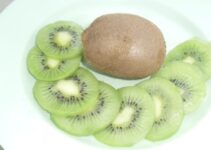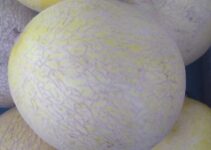The fruit is sweet, and its flavour is a blend of peach, citrus, and mango. Loquat (Eriobotrya japonica) is an evergreen shrub known by different names, such as Japanese medlar, Japanese plum, and Chinese plum. Initially, it has been grown in China, but now throughout the world. However, as far as its production is concerned, Japan is the leading fruit producer, followed by Israel and Brazil.
Nutritional facts of loquats
The fruit is rich in sugar, acid and pectin. 100 gram of the fruit has nutritional values as follows: Energy (47kcal), carbohydrate (12.14g), dietary fibre (1.7g), fat (0.2g), protein (0.43g), vitamin A (76 μg), thiamine (0.019mg), riboflavin (0.024mg), niacin (0.18mg), vitamin B6 (0.1mg), folate (14 μg), vitamin C (1mg), calcium (16mg), iron (0.28mg), magnesium (13mg), manganese (0.148mg), potassium (266 mg), sodium (1mg) and zinc (0.05mg). It is comparatively low in sodium and high in potassium, dietary fibre and vitamin A.
Top health benefits of loquats
- For glowing skin: The dried leaves of loquats are used in making tea called ‘Biwa cha’, which is beneficial for glowing skin and conditions such as psoriasis and eczema.
- Loquat for weight loss: It helps lose weight because of enough dietary fibre, which enhances metabolism and suppresses appetite. Enough fibre also discourages the longing for food.
- Improves eye vision: It contains antioxidants and phytonutrients, including vitamin A. All these are helpful for eye health. These biochemical compounds improve eye health and prevent retinal damage from free radicals. The fruit is also suitable for preventing cataracts and macular degeneration.
- Treats respiratory problems: The extracts of dried leaves are suitable for treating respiratory conditions, including asthma.
- Prevents colon cancer by removing toxins: The fruit is rich in pectin fibre, which helps remove toxins from the body. It eliminates extra toxins from the body and saves the colon from colon cancer.
- Controls cancer: Plenty of antioxidants combat free radicals and oxidative stress. These free radicals make the lungs weaken and prone to dreaded diseases like cancer. According to a report from China, these antioxidants suppress many diseases and improve life expectancy.
- Maintains blood pressure: The fruit is good at maintaining high blood pressure as it balances electrolytes because of the presence of an adequate amount of potassium and a lesser amount of sodium.
- Good for RBC formation: The required amount of minerals such as manganese, magnesium, iron, and copper helps form blood. On the other hand, vitamin C increases iron absorption in the body.
- Diabetes control: The plant leaves produce a chemical called triterpenes, which come under tormentic acid that enhances insulin production, thus helping minimise the impact of diabetes mellitus. These leaves are also good for the health of the pancreas.
- Good for liver health: The leaves of loquat present Amygdalin (B-17), known as releasing toxins from the liver and thus helping the proper functioning of the liver.
Best uses of loquats
- It may be used as a sedative when eaten in moderate quantity.
- It is used in making fruit salads and fruit cups.
- Jam, jellies, and chutney are prepared from it.
- Unripe fruits are used in making pies or tarts.
- It is used in making wine.
- Medicinal uses of loquats: In China, it is used as cough syrup to ease throat infections. Its leaves are used as an expectorant. Its leaves provide a soothing effect on digestion.





Tel me about asthama ayurvedic medicin
Wonderful! it is full of nutrients and minerals.